How to rebuild a city with Karam Alkatlabe

Meet MPhil Mathematics Education Student, Janella Ajeigbe
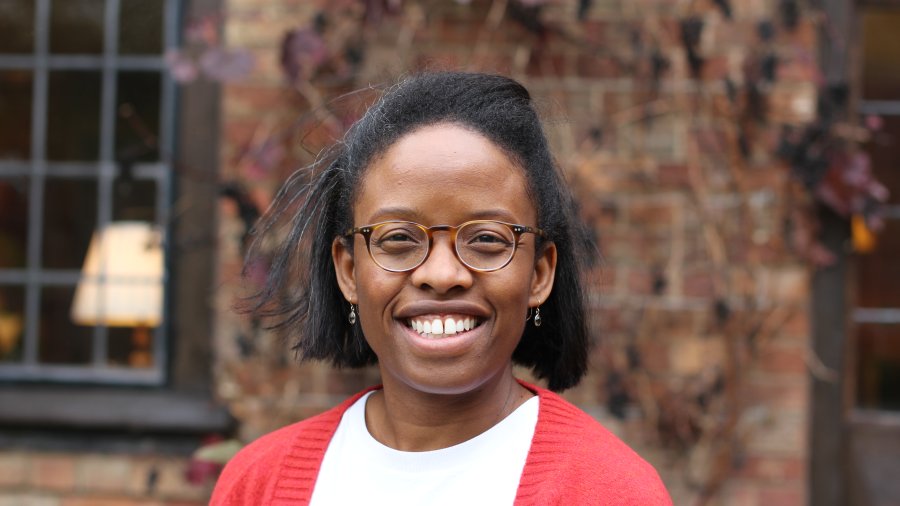
Janella Ajeigbe is a MPhil student in Mathematics Education, studying part-time and living in London. She is passionate about supporting all children to be successful at school.

Janella worked as a headteacher in central London and is currently working as a senior consultant, helping schools and other organisations to achieve better outcomes for their pupils. As a woman, a mother, and a student of Afro-Caribbean heritage, Janella is keen to see more people like her studying at Cambridge, especially female senior leaders from the education sector.
Can you briefly summarise your route to Cambridge? What did you do before starting your MPhil here?
I have been a headteacher and senior leader for over twenty years. I specialised in raising academic attainment through informal collaborations with fee-paying schools. This is a controversial specialism, but it is driven by my passion for more children to be able to access what the wealthiest children can. In visiting some of the most selective schools, I noted that there were many things that could be implemented in state schools at little or no cost!
In watching the attainment and confidence of my own pupils rise, I wondered whether the strategies my school used were reliable or scalable. I began to think (again) about postgraduate study and how it could help me to answer these questions.
Why did you want to study mathematics? What area of the subject particularly interests you?
I have always been passionate about the teaching of mathematics because I trained to be a teacher during an era when national strategies and advisors from the local authority held immense influence over the style and content of teaching in schools.
In my first years as a teacher, primary school pupils were not encouraged to learn their times tables nor use standard ways to add, subtract, multiply or divide. Mathematicians called this out as a grave mistake and explained how it was stunting attainment later on, but it took over ten years to change national policy. By the time I complete my MPhil in Mathematics Education, I hope to have a grasp on how this happened and how we can avoid similar mistakes in the future.
Did you always want to do a master’s degree at Cambridge? Was there something in particular that gave you a final push to apply?
After graduation (over twenty years ago) I started work as a teacher in Hackney. Almost immediately I thought about applying for a master’s course. Schools were in the middle of changes to the curriculum, and I wasn’t sure that I agreed with local or national policy.
I felt that a postgraduate degree would allow me to evaluate government policy better and therefore make better decisions for my pupils.
I completed several short courses over the years and thought about applying for postgraduate study but the stress of working full-time while managing a family meant that deadlines (and the years) came and went. As I grew older and started thinking about my pension, I sat down with an accountant and was staggered by the amount of money (and time) I had put into my son’s education and future. I realised that I hadn’t paid the same attention to my own education and future!
I stopped thinking of a master’s degree as a way to answer work questions and started thinking of it as something that would help me understand complex positions and articulate sophisticated arguments. It still took me 18 months to actually get everything together but I’m so glad that I finally did.
How do you think your current studies could be helpful to your senior leadership role?
The best thing about Cambridge is how ordinary I feel! Let me explain. I have worked in schools that had been inspected and judged as ‘outstanding’. This meant, counterintuitively, that they were less motivated to seek to improve – they were already doing very well. I have also worked in schools with significant weaknesses. Those schools had the opposite dilemma – there were so many problems needing to be solved that no-one felt they could take the time to read or study in order to improve.
At Cambridge, you are surrounded by interesting, motivated people who want to solve problems. They use research as well as collaboration (with each other, businesses, charities, and the public sector) to test and solve problems. If you are in a school and you want to do more than what you’ve always done or you want to go beyond the opinions of your advisors – apply to study here! It’s wonderful to feel ‘ordinary’ and that everybody else is interested in the same process as you.
How have you found settling into Cambridge ad College life so far?
I have found settling into Cambridge really easy. A stereotype of Cambridge may be that it is posh and stuffy but in reality, it is beautiful and calm. The staff at Wolfson, whether they are cleaners, caterers, porters, tutors, or the President herself, are focused on making sure that everyone feels welcome and finds a space to fit in.
Being an older student, I have worked in lots of jobs and had many orientation days but Wolfson/ Cambridge has been the best of them all. I'm sure you'll find the same thing too.
In terms of settling into College life, I have loved having the extra layer of a College wrapped around my graduate study experience. It’s great to know that I have another set of friendships, a completely different environment to study, eat and relax in, and access to tutors with perspectives unrelated to my discipline. I’m surprised at how much I have enjoyed my first few weeks, but it did help to get ‘stuck in’ by joining a society right at the start.
What societies or extra-curricular opportunities are you hoping to pursue whilst you are here?
I joined the Wolfson Entrepreneur’s Society and I’m also a Kings E-Lab Scholar. I have always been intrigued by the private sector and in ‘borrowing’ ideas that could improve the attainment and experience of children at school. The best bits about being in societies is being able to interact with a much wider range of people than I would meet outside of life at Cambridge. It’s interesting to hear their experiences and useful to get their feedback on your ideas.
I am so glad that I chose the part-time master's course as I get to spend an extra year at Cambridge! There are so many resources, events, talks, societies and people here and so I'm relieved that I don't have to try and squash it all into one year.
Is there anything you wish you had known before coming to Wolfson/Cambridge? What tips would you give to prospective students?
I wanted the guidance of tutors, the interaction with others, the resources of the university, and the quiet time at study to find answers and to acquire new tools. Irrespective of the seniority of your current position, if you have a question or academic problem that you think graduate study might help you answer, apply to Cambridge. I’m already thinking about applying for doctoral studies!
This article is part of the 2023/4 Postgraduate Student Profile Series:
You can learn more about the funding available at Wolfson and how to apply to study for a postgraduate course at Cambridge University as a Wolfson College student on our website.
You can also watch our postgraduate video to find out more about the social and academic environment at Wolfson.
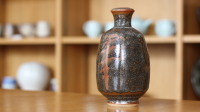
A display of works from the Bradshaw-Bubier studio pottery collection.
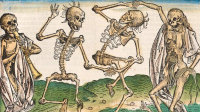
How we can develop ‘death activism’ – a variety of tactics and posthuman practices which celebrate death, its inevitability, its forms, from the slow to times of crisis, and how can trauma and mourning emerge as their own forms of expression, or even activism?
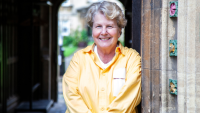
We are delighted to welcome Sandi Toksvig OBE as our speaker for Wolfson's prestigious Lee Lecture this year.

Join us for the 2024 Wolfson Research Event: an interdisciplinary academic conference organised by students to showcase the diversity of the research carried out by Wolfson students.
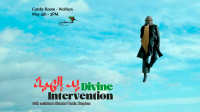
Screening of Elia Suleiman’s Divine Intervention, in conversation with assistant director Rania Stephan.







